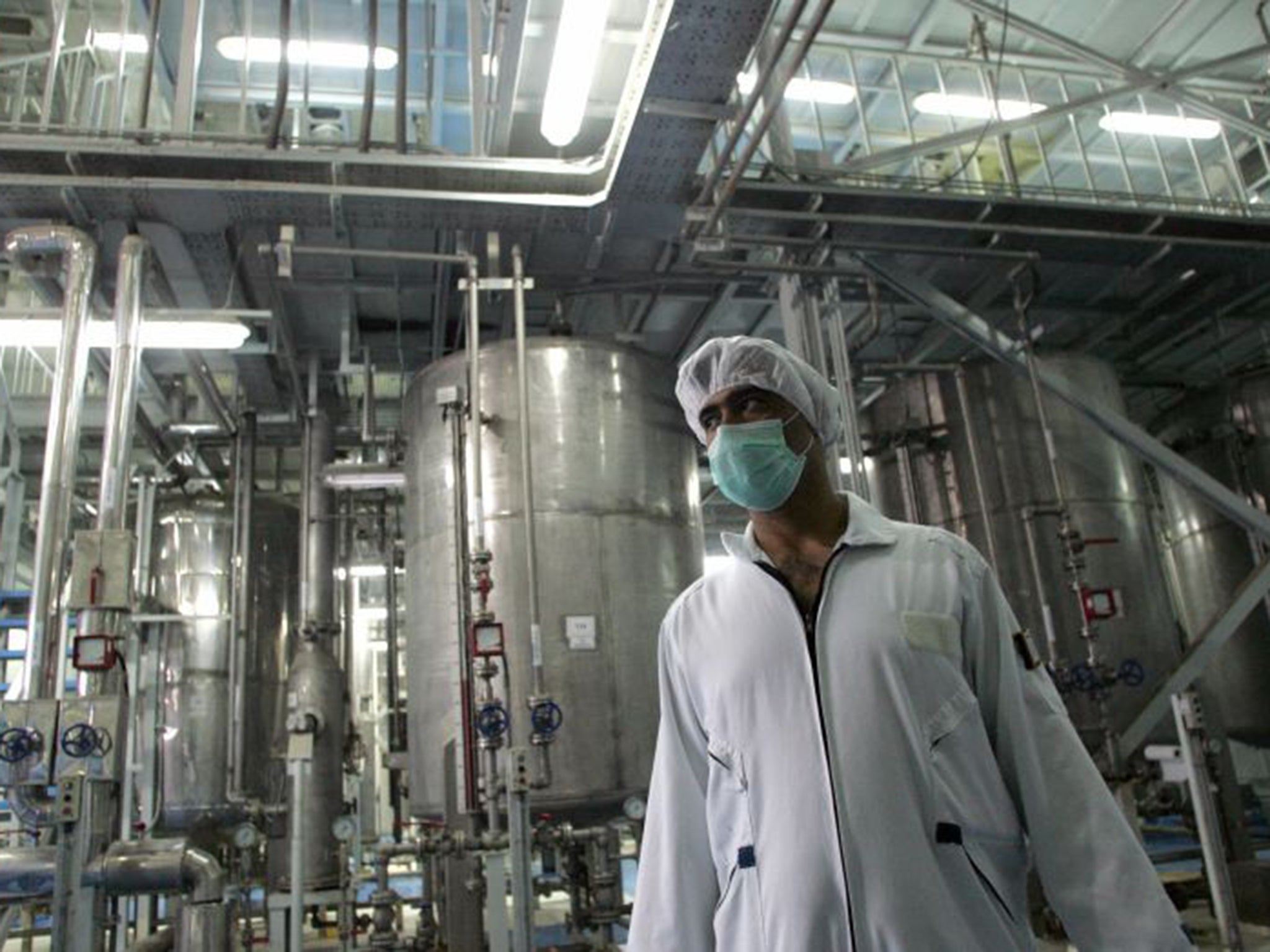Iran nuclear deal: What are the remaining sticking points as clock ticks towards deadline
Negotiators face hurdles as they try to reach a deal with Iran

Your support helps us to tell the story
From reproductive rights to climate change to Big Tech, The Independent is on the ground when the story is developing. Whether it's investigating the financials of Elon Musk's pro-Trump PAC or producing our latest documentary, 'The A Word', which shines a light on the American women fighting for reproductive rights, we know how important it is to parse out the facts from the messaging.
At such a critical moment in US history, we need reporters on the ground. Your donation allows us to keep sending journalists to speak to both sides of the story.
The Independent is trusted by Americans across the entire political spectrum. And unlike many other quality news outlets, we choose not to lock Americans out of our reporting and analysis with paywalls. We believe quality journalism should be available to everyone, paid for by those who can afford it.
Your support makes all the difference.Uranium
Where Iran’s existing nuclear fuel should be stored has suddenly become a sticking point in the negotiations. The P5+1 (UN Security Council permanent members plus Germany) had previously believed that Iran’s government was willing to move its enriched fuel to Russia, but Iran’s Deputy Foreign Minister, Abbas Araqchi, said on Sunday that there was “no question” of sending stocks abroad.
Iran has spent billions on acquiring and processing the uranium, which it insists is for a peaceful nuclear power programme. Western officials have suggested there may be ways to dilute, or blend, Iran’s partially enriched uranium so it is still suitable for generating nuclear power but is harder to enrich to the much higher 90 per cent level needed for a weapon.
Sanctions
Sanctions have crippled Iran’s economy and the Lausanne talks have included which ones might be lifted in the event of a deal, and how quickly.
Tehran wants most lifted immediately, especially those that target its oil and banking sectors. Iran’s Foreign Minister, Mohammad Zarif, said on Saturday that the P5+1 “have realised that sanctions, pressure and an agreement will not go together”. In fact, the P5+1 argues that the lifting of most sanctions should be linked to inspections conducted by the UN’s nuclear watchdog, the IAEA. They would be gradually eased as investigators’ confidence grows that Iran’s remaining nuclear capability has no military dimension.
Centrifuges
It has always been accepted by Western negotiators that Iran would be allowed to keep some centrifuges – the devices used to enrich uranium, ultimately to weapons-grade material. Iran currently has about 18,000 centrifuges (although the number in use is thought to be about half of that), which are also needed to produce nuclear energy. Any deal is likely to include a provision that Iran could keep as many as 6,500 at its two main nuclear sites – Fordow and Natanz.
At present, Iran has enough partly enriched uranium and centrifuges to make a nuclear weapon within a few months. By cutting the number of centrifuges at Tehran’s disposal, the West hopes to extend that “break-out” period.
Sunset clause
If a deal is finally struck in Lausanne, Iran knows it will be subjected to regular inspections by the IAEA, but is not prepared to allow these to continue indefinitely. Instead it has insisted on a “sunset” provision, to limit checks to 10 or 15 years.
In his recent speech to the US Congress, the Israeli Prime Minister Benjamin Netanyahu said that this was among his biggest fears. A decade was merely “a blink of an eye in the life of a nation... a blink of an eye in the life of our children,” he said.
Other countries
The Western powers are under strong pressure from allies around the world, in particular in the Middle East, to ensure that any deal is, in the words of the Israelis, a good deal. Israel is keen to limit Iran’s ambitions.
Its mistrust of US policy is one reason for the breakdown of trust between the two governments. Sunni Saudi Arabia is also no friend of Shia Iran and officials in Riyadh may be tempted to develop their own nuclear weapon if they feel that Iran could do so. It all adds to the possibility of a nuclear arms race in what has long been the world’s most unstable area.
What has been agreed?
Aside from the provisional accord on the number of centrifuges, and the agreement the P5+1 thought it had secured over the export of Iran’s enriched uranium, the other major deal is over Iran’s heavy-water nuclear reactor at Arak. The site, a jewel in the crown of Iran’s atomic programme, will be reconfigured so that it can produce less fissile material.
Join our commenting forum
Join thought-provoking conversations, follow other Independent readers and see their replies
Comments